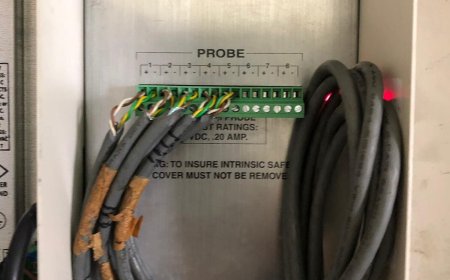Why Seniors in Grants, NM Should Consider Implant-Supported Dentures
This blog takes a closer look at why seniors in Grants, NM, should consider opting for dentures. Let’s learn more about it in the following sections.

Did you know?
Tooth loss affects a significant proportion of older adults!
Nearly 17.3% of Americans aged 65 and older are edentulous, meaning they have no natural teeth remaining. Additionally, up to 57% of individuals aged 65-74 wear dentures.
While losing teeth might sound like a common cause of old age, its essential to understand how it impacts your everyday life. It affects your smile, confidence, and digestion as well.
Therefore, this blog takes a closer look at why seniors in Grants, NM, should consider opting for dentures. Lets learn more about it in the following sections.
Implant-Supported Dentures: What are Those?
Implant-supported dentures, also known as implant overdentures, usually combine titanium implants and place them in the jaw surgically, along with a removable or fixed denture attached to them.
The post act as artificial roots, anchoring the denture, which is then snapped, clipped, or screwed onto the implants. There are two standard formats-
-
Snap-in or removable: You can remove your dentures for nighttime cleaning.
-
Fixed or full arch: You cannot remove it by yourself. A dentist has to help you out in removing it.
Working Principle of Implant-Supported Dentures
Implant-supported dentures must be surgically placed in your mouth, following a step-by-step approach.
-
Consultation and Planning: Your dentist will conduct an X-ray to evaluate your jawbone health. If the bone is insufficient, they might recommend you for another procedure, bone grafting.
-
Implant Placement: The titanium posts will be inserted into your jaw surgically. The healing or osseointegration after implant placement takes anywhere between 3 and 6 months.
-
Attachment: The denture is prepared by customizing it according to your oral dimensions. They are then fabricated for secured attachment to implants using snaps or screws.
-
Aftercare: Regular dental visits and maintaining a proper oral hygiene routine, which includes brushing, flossing, and cleaning attachments, will aid in the overall recovery process. Besides, it will also help increase its span.
The implants become a part of your jaw, and they will stabilize your bone and provide you with up to 96-98% five-year survival rates with crowns or dentures lasting between 10 and 15 years.
When Do Seniors Need Implant-Supported Dentures?
An implant-supported denture is not a luxury, but it is a dental solution for seniors facing the physical and emotional challenges of severe tooth loss. Our dentists at Sundance Dental Grants typically recommend implant-supported dentures under certain conditions , like -
Unstable Conventional Dentures
The traditional complete dentures usually rest on your gums without anchoring to your jawbone. Over time, the gum tissues start to shrink and shift, especially in the lower jaw. This can lead to several uncomfortable scenarios, like-
-
Development of chronic sore spots in your mouth and irritation from denture friction.
-
Slippage of dentures while you eat, speak, or laugh can be embarrassing.
-
You become dependent on adhesives, which are messy, inconvenient, and often ineffective.
Implant-supported dentures reduce movement and the chances of painful sores, making them more comfortable and reliable for daily usage.
Difficulty in Chewing or Speaking
Loss of natural teeth or loose dentures automatically impacts the bite force. You might notice your elderly parents avoiding food items like crunchy vegetables, such as carrots or cucumbers, protein-rich meats like steak and chicken, and hard fruits like apples, as well as nuts and seeds. Failing to consume these essential food items can eventually lead to the development of nutritional deficiencies. This manifests as various symptoms, including fatigue, muscle loss, impaired healing capability, and a weakened immune response.
Implant-supported dentures, on the other hand, will restore around 60-80% of bite force, unlike conventional dentures. This allows elderly patients to expand their diet and eat food items they love without any fear of pain and discomfort. They can also chew their food more thoroughly, which aids their digestion.
Jawbone Resorption and Facial Changes
When elderly patients lose their teeth, their jawbone no longer receives the pressure and stimulation it needs to stay strong. This causes the jawbone to shrink gradually, particularly in the lower jaw, resulting in bone resorption. It compromises the perfect fit of traditional dentures over time, requiring frequent relining or remaking of the dentures. Some of the common effects of bone resorption are sunken cheeks and lips, wrinkles, and sagging skin around the mouth.
Implants provide the mechanical support that a jawbone requires after a tooth is removed. They mimic natural tooth roots, which helps preserve bone volume, maintain facial volume, and reduce further resorption. So your elderly parents can slow down or prevent facial aging caused by bone shrinkage.
Risk of Cognitive Decline
Recent studies have shown a compelling link between oral function and cognitive health in older adults. It has been found that tooth loss is associated with a higher risk of dementia and cognitive impairment.
Using an implant-supported denture will restore their oral function and boost their chewing ability. It will also enhance confidence, which will protect against cognitive decline.
Seniors who use implant-supported dentures are found to have better memory and cognitive scores than those who use traditional dentures.
Challenges Of Getting Implant-Supported Dentures
Even though implant-supported dentures in Grants, NM, offer substantial advantages over traditional options, there are specific considerations that patients need to understand. Here is a closer look at the common challenges when it comes to getting implant-supported dentures-
High Upfront Cost
The initial cost of implant-supported dentures is higher than that of traditional dentures. The price range varies between $2,000 and $10,000, depending on the number of implants, materials, and whether the implant is fixed or removable.
However, the investment is worth every penny! Implants last anywhere between 15 and 25 years or more with proper care and maintenance. It requires very few adjustments and also reduces the chances of sore spots, oral infections, and bone loss.
Health Concerns Related To Surgery
It is a valid concern since elders tend to have a slow recovery rate after any invasive or surgical procedure. But the good news is that implant placement surgery is minimally invasive and is done under local anesthesia with mild sedation.
Most patients experience mild swelling or soreness for 2-3 days, which can be treated with medications. Advanced techniques, such as 3D imaging and guided implant surgery, reduce the time and risk, ensuring maximum precision and a smooth recovery.
Bone Density Issues
This is a common issue that many patients encounter. Loss of jawbone density is common after long-term tooth loss, especially in the lower jaw. However, there are also solutions, such as bone grafting, zygomatic or angled implants, and mini-implants.
Owing to this problem, you must act early. The longer you wait after losing a tooth, the more bone density will be lost. Implant-supported dentures prevent any further bone loss and help maintain the facial structure over time.
Takeaway
-
Post act as artificial roots, anchoring the denture, which is then snapped, clipped, or screwed onto the implants.
-
The implant-supported dentures have to be placed in your mouth surgically.
-
Ready to experience an effortless smile? Connect with our experts at Sundance Dental Grants today!




































